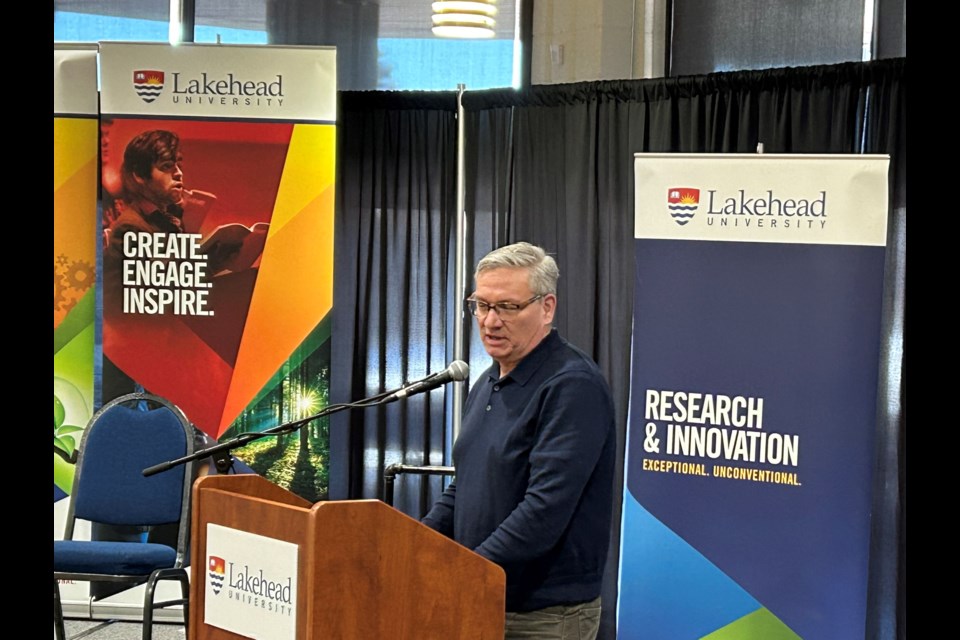THUNDER BAY – Professors and students that dedicate their time to researching specific issues were recognized on Wednesday during a showcase of nine Lakehead University researchers held on Wednesday in the Faculty Lounge.
The showcase was part of Lakehead's 19th annual Research and Innovation Week.
Among the presenters, Paul Cormier offered a talk called Indigenous Community Based Research?, discussing the implementation of Keewatinase, a program that offers students with Indigenous ancestry unique opportunities to become a teacher in a supportive environment.
“I have always had an affinity towards teaching even though I wanted nothing to do with education when I was in high school,” said Cormier, an associate professor in Keewatinase, Indigenous education at Lakehead University and a member of the Red Rock Indian Band.
“I have this concept called Indigenous activity-based learning, which doesn’t always fit our cultural traditions and how we would have traditionally learned.
“Some people think that learning involves me giving you a series of facts, then you memorize them and say them back to me. In an Indigenous context, the way we would have learned traditionally didn’t happen in a classroom but rather doing things with our grandparents, aunts, uncles and the rest of the family unit.”
Cormier said the work began with a special land-based master’s program and has since expanded to include other communities such as the Sandy Lake First Nation.
Abdulsalam Yassine presented his research to try and leverage artificial intelligence to devise intelligent charging solutions for electric vehicles in rural, remote and northern communities.
Yassine, who is an associate professor and chair of software engineering, described what he considered “a challenging problem for society” in his talk, AI-Enabled Sustainable Transportation for Northern Communities.
“There are a lot of technological advancements that we need to unfold and solve in order to address this problem,” Yassine said.
“Mobile charging stations (for vehicles) could complement fixed charging stations because there are a lot of infrastructure, capital and logistic issues that need to be addressed with a fixed charging station. The alternative is to have mobile charging stations where they can move around.”
Yassine noted that his work is in the infancy stage, with the eventual goal to approach more business and political decision makers with a pilot project.
More information and a complete list of events can be found here.
